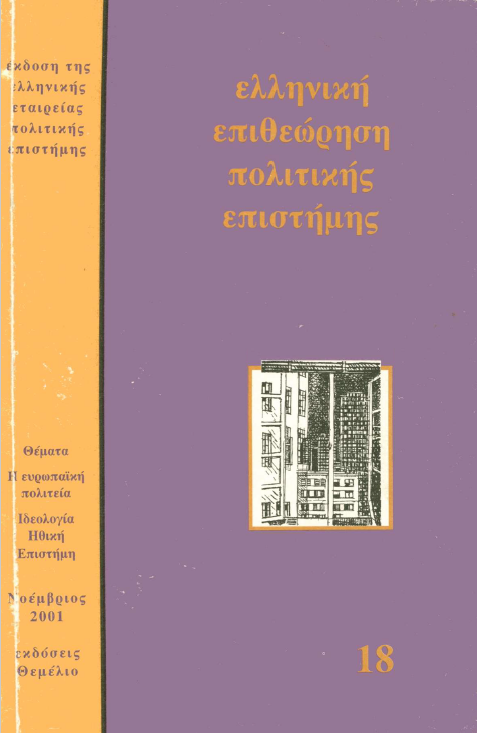Representation crisis and Democracy

Abstract
The concept of representation is closely linked with the idea of the political unity of the social, the basis of which is the notion of sovereignty. Because of the fact that any absolute political unity is impossible a priori, the representation crisis is immanent in politics and, even more, in modern democracy, in the midst of which emerged the «social problem» and its contradictions, which are specific to it.
In modem pluralist societies, representation takes the form of political management alternatively exercised by blocks of partial interests, which implies the invalidation of sovereignty as well as the weakening of the general will, on which is based the concept of democracy as well as of political unity in its classic sense. Due to the pluralistic character of modem societies and the fact that the political unity is defined as a situation of density or of degree, the representation crisis cannot be overcome, only moderated.
The article maintains that, from a theoretical point of view, this aim can be reached by a greater autonomy of the political space attainable through the validation of the superiority of the Constitution against any other form of consensus, but, principally, through the integration of «social rationality» within it, throw a synthesis between the American and the French constitutional tradition.
Article Details
- How to Cite
-
Μπαλιάς Σ. (2017). Representation crisis and Democracy. Greek Political Science Review, 9, 138–166. https://doi.org/10.12681/hpsa.15229
- Issue
- Vol. 9 (1997)
- Section
- Articles

This work is licensed under a Creative Commons Attribution-NonCommercial-ShareAlike 4.0 International License.
Authors who publish with this journal agree to the following terms:
Authors retain copyright and grant the journal right of first publication with the work simultaneously licensed under a Creative Commons Attribution licence that allows others to share the work with an acknowledgement of the work's authorship and initial publication in this journal.
Authors are able to enter into separate, additional contractual arrangements for the non-exclusive distribution of the journal's published version of the work (e.g. post it to an institutional repository or publish it in a book), with an acknowledgement of its initial publication in this journal.
Authors are permitted and encouraged to post their work online (preferably in institutional repositories or on their website) prior to and during the submission process, as it can lead to productive exchanges, as well as earlier and greater citation of published work (See The Effect of Open Access).




